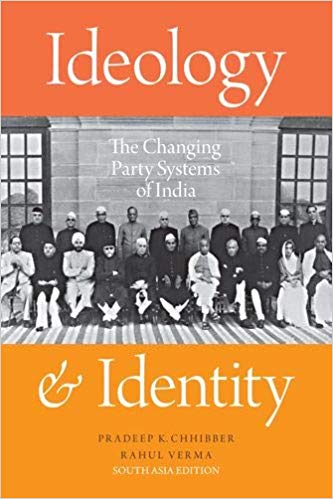Party politics in India has often been characterized by observers as being patronage-based, chaotic and opportunistic, driven largely by interests of office seeking politicians rather than ideology. This in turn is assumed to have led to corruption, rent-seeking and clientelistic behaviour rather than broad-based programmatic delivery of public goods. Literature also refers to Indian politicians adopting particularistic appeals based on voters’ identity such as caste, religion and region to promise targeted benefits for a segment of voters in return for electoral support. Further, it has been argued that locally influential politicians, including those with criminal charges, who promise to deliver clientelistic benefits, have better chances of electoral success. In this scenario, the elites (politicians) and not the voters are seen to have disproportionate latitude to shape the party system, rendering ideology relatively irrelevant.
In a thought-provoking counterview, Chhibber and Verma argue that Indian party politics involves genuine contests of ideas, policies and visions. They challenge the universal applicability of the western notion of ideological space where the rise of nation-states coincided with conflict between labour and capital; centre and periphery; cities and rural areas; and between the church and the state. In particular, these divisions fail to reflect the ideological debates in ethnically diverse societies such as India. Instead, the authors identify two alternative ideological dimensions––‘Politics of Statism’ and ‘Politics of Recognition’––that have shaped party politics in India. While Statism is defined as ‘the extent to which the state should dominate society, regulate social norms, and redistribute property’, Recognition refers to ‘whether and how the state should accommodate the needs of various marginalized groups and protect minority rights from assertive majoritaraian tendencies’ (p. 2). The authors assert that these divisions have their roots in the political debates at the time of India’s Independence about the role of the state in economic and social spheres, and providing special rights to certain marginalized social groups. Using empirical analysis based on National Election Studies (NES) data, voter surveys and Constituent Assembly Debates, the authors show that political parties in India and their voters take distinct positions on Statism and Recognition. They accordingly argue that these themes have constituted ideological space of party politics in India, and can explain the evolution of the Indian party system from Congress party dominance and its decline, to the emergence of regional parties and more recently, the rise of Right Wing Hindu nationalist Bharatiya Janata Party (BJP). They also highlight the importance of transformational leaders in articulating their party’s ideological vision, and in debating competing ideas about Statism and Recognition in India. Overall, the authors imply that ideology rather than office-seeking incentives of politicians plays a primary role in shaping party politics in India.

